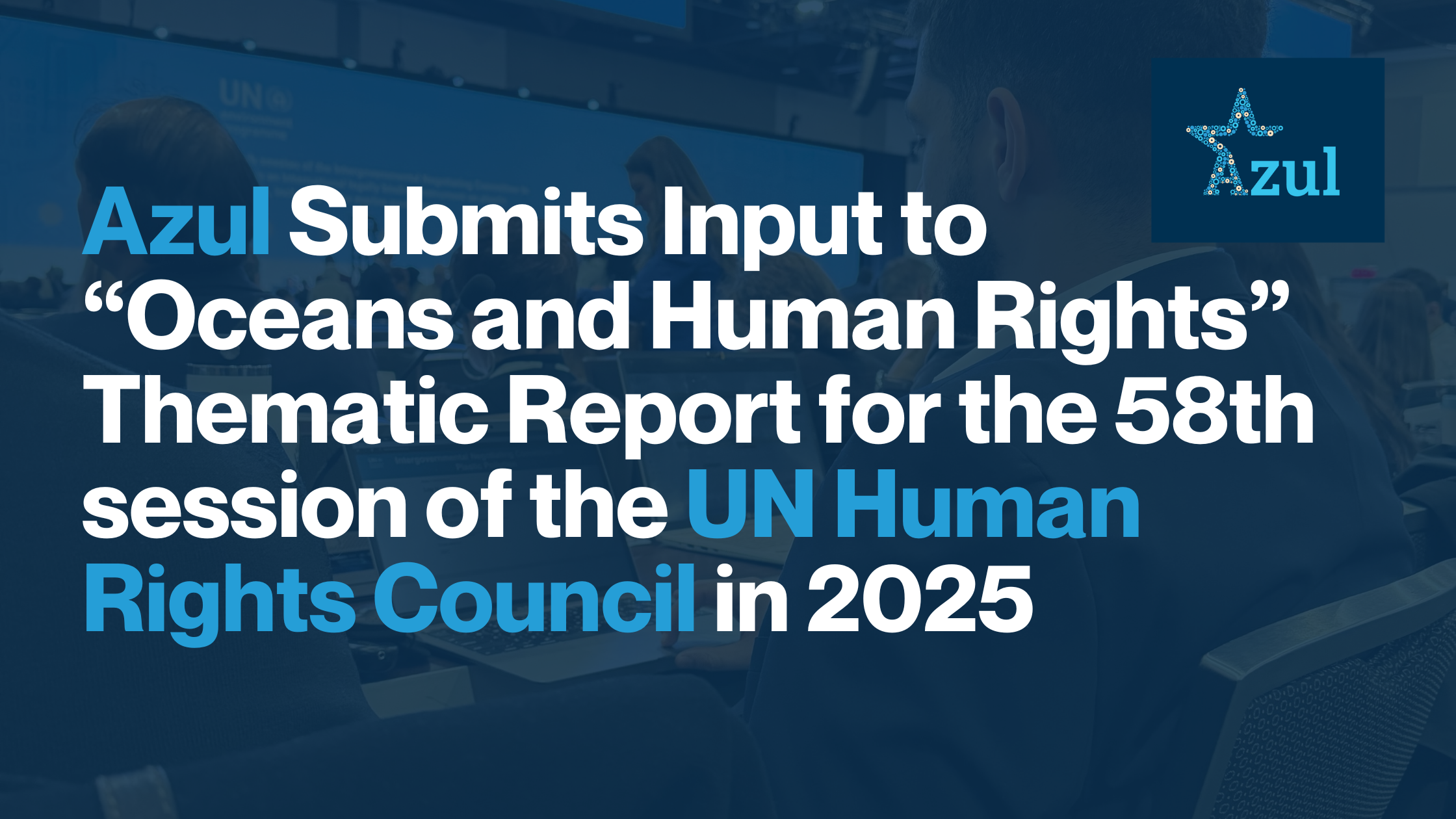Azul Submits Input to ‘Oceans and Human Rights’ Thematic Report for the 58th session of the UN Human Rights Council in 2025

Download: Azul’s Input for UN Human Rights Council March Session Thematic Report
The ocean is the world’s largest biome, covering 70% of the Earth. Despite the importance of the ocean, human-induced activities are causing significant environmental and climate impacts, some of them irreversible, to an extent that are also impacting the enjoyment of several human rights, including the right to a healthy environment, right to life, food, work, culture, among others.
Guaranteeing strong and effective ocean governance is critical considering the importance of the ocean, its status and threats. This is also important due to its direct connection to the enjoyment of all human rights, including the right to a clean, healthy and sustainable environment and healthy ecosystems and biodiversity. Therefore the Special Rapporteur aims to contribute to the implementation of this right by analyzing the situation of the ocean from a human rights perspective, identifying threats and challenges that States are facing in securing their protection, and identifying tools and solutions that can be implemented to effectively guarantee human rights, prioritizing Indigenous Peoples, women and small scale fisherfolk, local communities, while also protecting and conserving the ocean, the largest ecosystem on Earth.
To inform the thematic report regarding “Oceans and Human Rights” to be presented to the 58th session of the UN Human Rights Council in 2025, the Special Rapporteur on the human right to a clean, healthy and sustainable environment opened a call for input on this report this fall.
In October 2024, Azul submitted input to the report that touched on all five questions posed by the Special Rapporteur. Azul’s input, authored by Roland Gonzalez Pizarro, Azul Senior Policy Associate, highlighted that:
• The sustainable management and protection of marine ecosystems require a multifaceted approach that integrates environmental, social, and human rights considerations.
• Strategies such as community-based marine management, Marine Protected Areas, and effective Environmental Impact Assessments are essential for fostering resilient coastal environments while incorporating local communities.
• International agreements, including the Convention on Biological Diversity, the UN Framework Convention on Climate Change, and emerging treaties addressing plastic pollution, reinforce the necessity of incorporating human rights into environmental governance.
• By prioritizing stakeholder engagement, especially the voices of marginalized groups and Indigenous communities, and implementing robust social safeguards, we can create equitable frameworks that not only protect marine resources but also promote social justice.
• Ongoing collaboration and advocacy are crucial to adapting these strategies to evolving environmental challenges.
A holistic approach to ocean conservation will ensure that both the environment and the rights of all communities are upheld, paving the way for a sustainable future for our ocean.
Download: Azul’s Input for UN Human Rights Council March Session Thematic Report